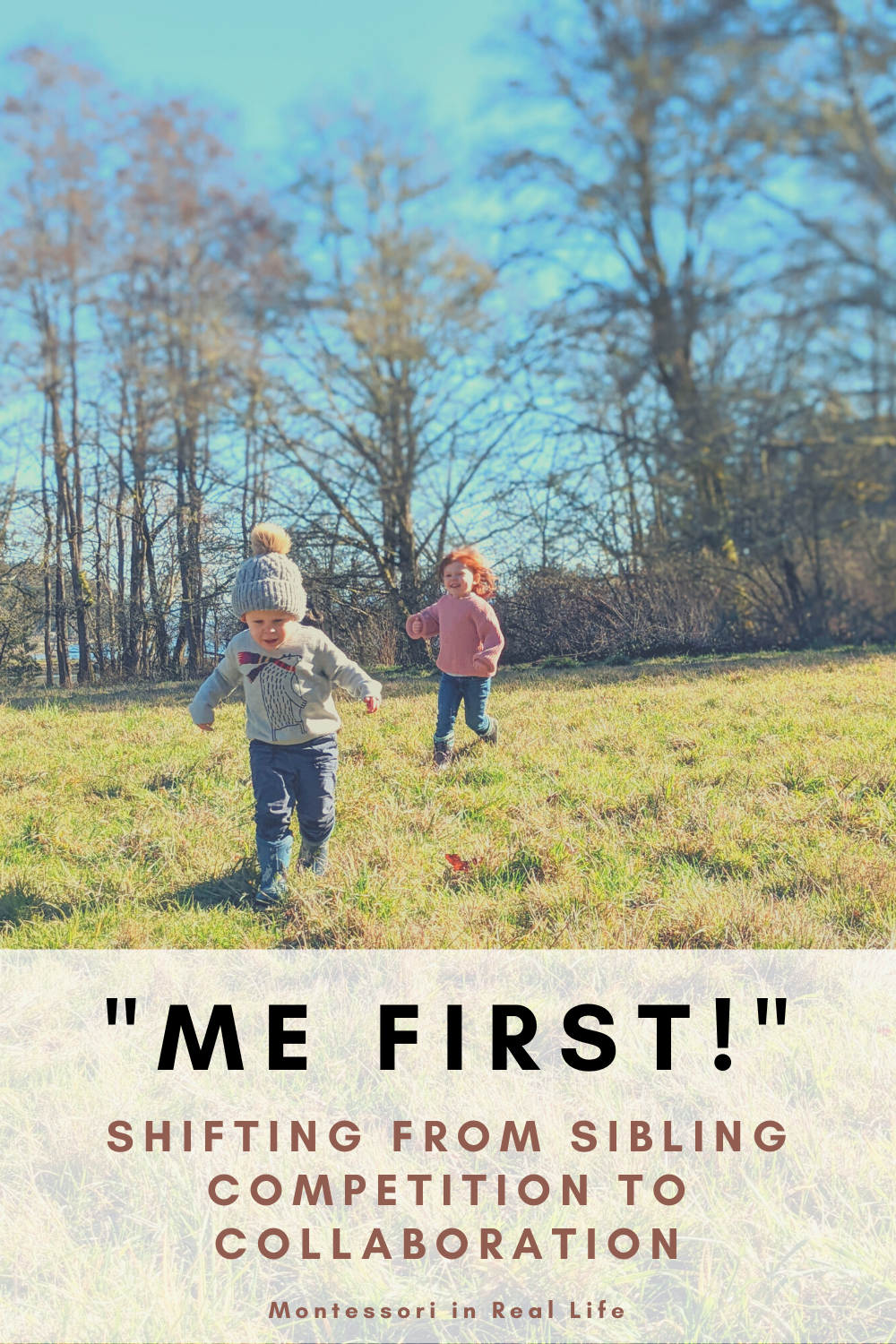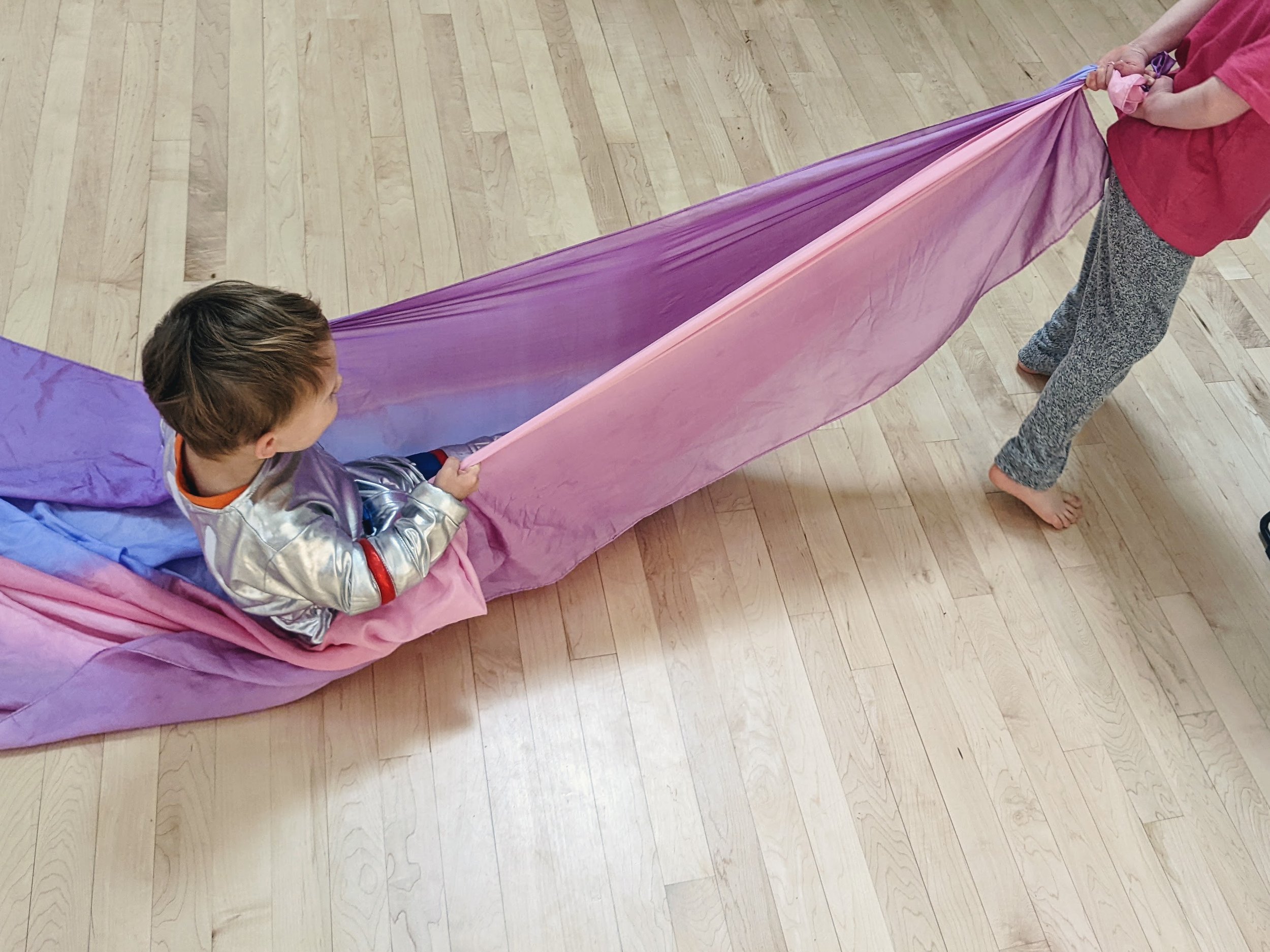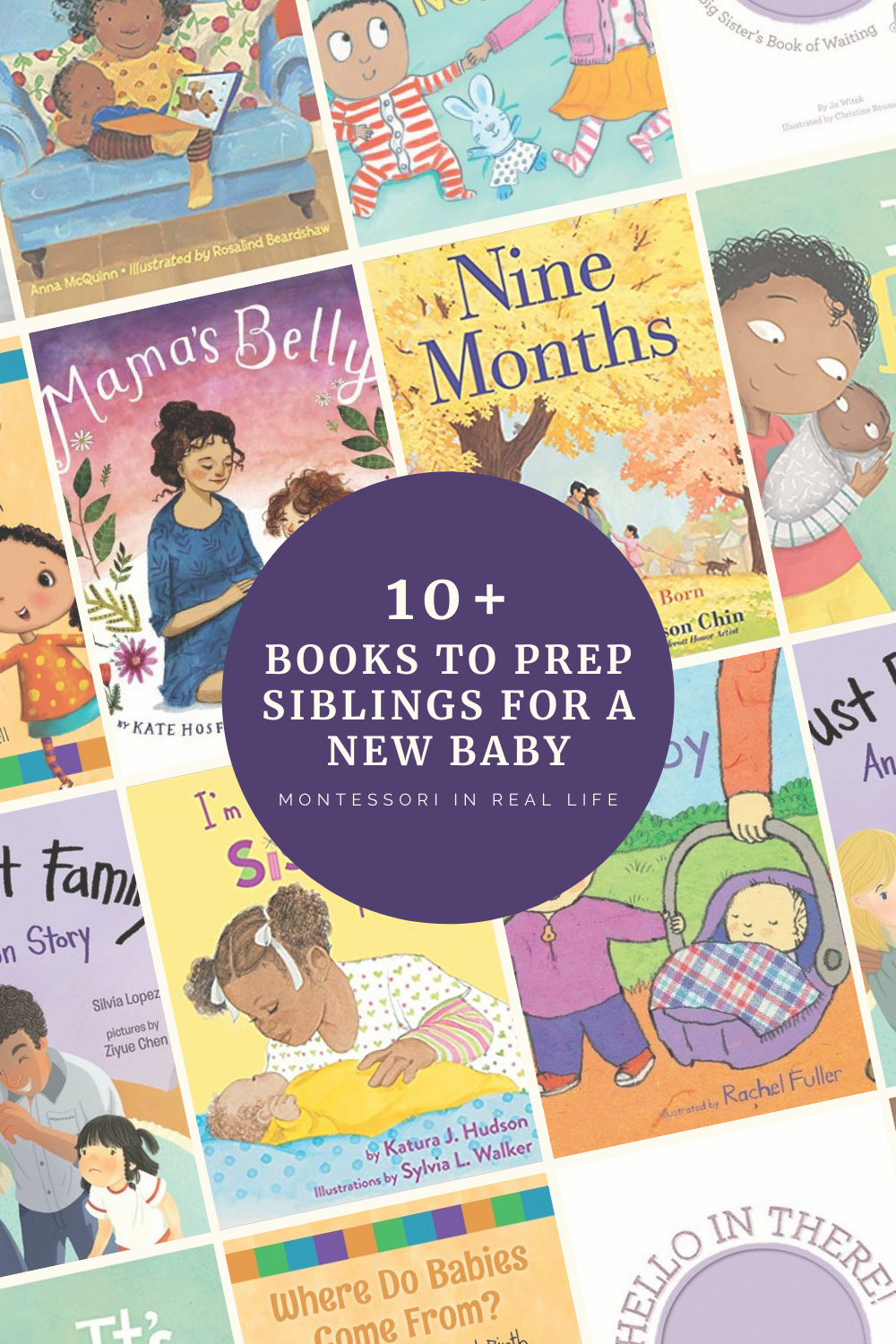"Me First!": From Sibling Competition to Collaboration
Montessori in Real Life
A few phrases I hear on the regular include: “Get me out first!”, “No, I’m sitting next to mommy!”, “Read MY book first!”
On the surface, it seems so silly for the kids to be arguing over who is going to get unbuckled from their car seat first or who gets to sit on my left side on the couch. It can be challenging to be patient in these moments. But when I dig deeper (which I tend to do when lying in bed at night), I can usually get to the root of all of these seemingly petty arguments. Once I understand the cause, I can better handle both the situation and my own response.
The common thread among these “me first” arguments is a yearning for my attention. It is HARD to share a person that you love. It’s understandable that they both want to feel that they are the most important and each very loved by me. This is more true than ever as we get ready to welcome a new baby. While I know with certainty that I could not love one child more than the other, that is a trickier concept for young children to understand. Attention = love in their minds, and they are keenly aware of the balance or imbalance of that attention each moment of each day.
While there are still plenty of “me first” arguments, I’ve found a few strategies that seem to help. Some of the strategies I’m sharing are preventative and can be implemented anytime. Other strategies are ones I use in the moment, when the arguing and competition is high.
1:1 Time
The best way to fill each child’s cup and make them feel uniquely loved is through 1:1 time with either me or my husband. While this can be a special outing together (such as going to the children’s theater as pictured below!), I find just as much benefit from small moments each day. This might be preparing a meal or playing a board game together while the other sibling is busy playing or reading a favorite story while the other is napping or already in bed. These short but sweet one-on-one times each day boost their confidence in our relationship, and let them know they are special to us.
The goal isn’t “equal”
One of the best ways to nurture the sibling friendship and reduce the rivalry is to not try to make everything fair or equal for them. Siblings are related but they are each very unique. Just as they prefer different breakfasts, they have different needs from me. While S craves lots of physical contact, D wants time to play board games and work alongside one another. I don’t have to give them the same thing to make each feel better. I simply have to meet each one where they are at.
Predictable Routines
The more we stick to a (semi) predictable routine, the more the kids thrive, especially together. The biggest meltdowns and sibling arguments happen when they are surprised and unsure of what’s coming. A good example of this is when I “surprise” them with a special treat. I get excited to share it with them and then before I know it, it’s all about who got the bigger piece and not at all about the joy of a treat. This is in contrast to our weekly predictable trip to the bakery or their favorite park, where they know what they will get and the same arguments don’t occur. Of course life is full of surprises, as it should be, but it’s helpful to keep in mind that surprises can lead to bigger feelings and fights, and to be emotionally prepared for it!
Let the Kids Solve it
Now that the kids are both preschool age (almost 3 and 5), I find I can help them move from competition to collaboration by letting them come up with solutions. For example, if they are arguing about who gets to feed the dog, I will say something like “You both really want to feed Kula, and she’s lucky to have two family members who want to help take care of her! How do you think you can both take care of Kula and still make sure she gets her dinner tonight?” In the past, the kids (often D) have suggested that one gets the food and one gets the water for Kula. They also decided to take turns feeding Kula at dinnertime and they keep track of whose turn it is each evening far better than I do. While I’ll admit letting them come to a solution on their own does not always work, it is such great practice for them to brainstorm and come up with solutions together.
Work as a Team
If we notice they are starting to argue often, we try to put the kids on the same team instead. This means coming up with activities where they are working towards a common goal. Rather than ask them to race each other to get ready, I might ask if they can work together to clean up all the little pieces before the song ends or if they can get in their car seats before I pack up the trunk. I often include myself in the team and help them out, modeling that we all work as a team. I even say “let’s work as a team to _____” which helps them think about our family or each other as a team. My husband is especially good at inventing big movement games where they try to beat a clock or even him instead of each other. I also really like cooperative board games for this reason - they are trying to win together.
Moving from competition to collaboration is as constant and challenging a practice for us adults as it is for kids. The less value we put on being first, the less the kids focus on being first. Simply being aware of this, combined with a sense of compassion and understanding for how difficult sharing a loved one is, can make the biggest difference of all.





